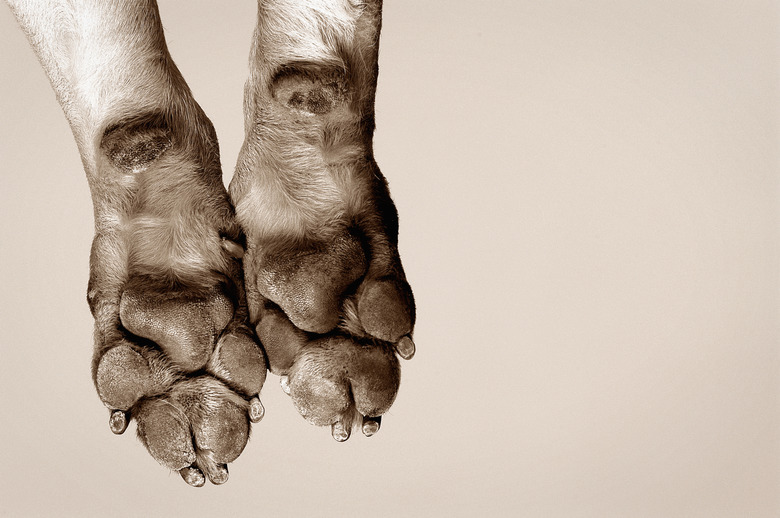How To Remove Calluses From Dog Paw Pads
Dogs get calluses on their paw pads from walking on hard surfaces without protection. Apply dog paw balm to soften these calluses and to restore moisture to their paw pads. Most of the time, medical attention isn't needed, but if your dog appears to be in pain or has problems moving, speak to your veterinarian.
Causes of a callus on a dog paw
Causes of a callus on a dog paw
Walking on hot pavement or concrete in the summer or through icy roads and salty sidewalks in winter hardens the surface of your dog's paw pads. Dogs can also get calluses by standing or resting for long periods of time. Dogs of all breeds and all ages can form calluses. Sometimes, an underlying health condition or hereditary issues can cause calluses to develop.
Select a dog paw balm
Select a dog paw balm
Thankfully, it's really easy to use a dog paw moisturizer to soften hardened paw pads. You can use dog paw balms to prevent future issues by soothing the paws with moisture and repairing dry paw pads. Dogs love to lick their paws, so you must use a dog paw balm designed for canines, not lotions made for people. Anything you apply to the exterior of your dog can end up inside her, which is why it's important to only use made for a dog paw balms. If you prefer to use natural ingredients, you can apply coconut oil directly to your dog's paws.
How to apply dog paw balm
How to apply dog paw balm
Have your dog lie down on the floor, his dog bed, or in his crate. If you can, have a friend or loved one help you by holding the dog or petting him. Begin to gently apply a small amount of dog paw balm to each paw pad on every paw, taking the time to gently rub it in. Distract your dog with a treat or two and constantly tell him compliments to make him feel relaxed. Dogs tend to move around, so be patient as you apply the balm.
Allow time for dog paw balm to absorb
Allow time for dog paw balm to absorb
After you have applied a dog paw moisturizer, your dog's paws will be a bit greasy as the moisturizer sinks in. To prevent dogs from spreading the moisturizer around your home (and to prevent your dog from licking off the paw balm), place socks or paw booties on your dog's feet for a few minutes. You can also temporarily place your dog in a crate so she doesn't walk the paw balm all over the house. Alternatively, you can encourage your dog to stay in one place with treats or a Kong filled with peanut butter.
Prevent calluses on dog paws
Prevent calluses on dog paws
Check your dog's paws daily for cuts, bruises, lumps, or debris, like rocks stuck between the paw pads. Look for any signs of bleeding, pus, or cracks. During wintertime, protect your dog's sensitive paws with paw booties or by wiping down his feet after a walk. Use paw pad moisturizer regularly on a weekly basis to keep paw pads soft so they don't begin to crack.
Dog paw veterinary care
Dog paw veterinary care
Most of the time, a callus on a dog paw will simply be a cosmetic issue and not worth a trip to the vet. However, if your canine companion is having problems walking or standing or appears to be in pain, it's time to speak with your veterinarian.
If your dog's paw pads look hairy, they may have a health condition called hyperkeratosis that makes extra skin grow on the paws. If your dog is overweight, putting her on a diet may take pressure off her paws (but you should never put your pet on a diet without veterinary guidance). Sometimes, a callus on dog paws can get infected, which always necessitates veterinary care. Consult your veterinarian to see if medical attention is needed.
